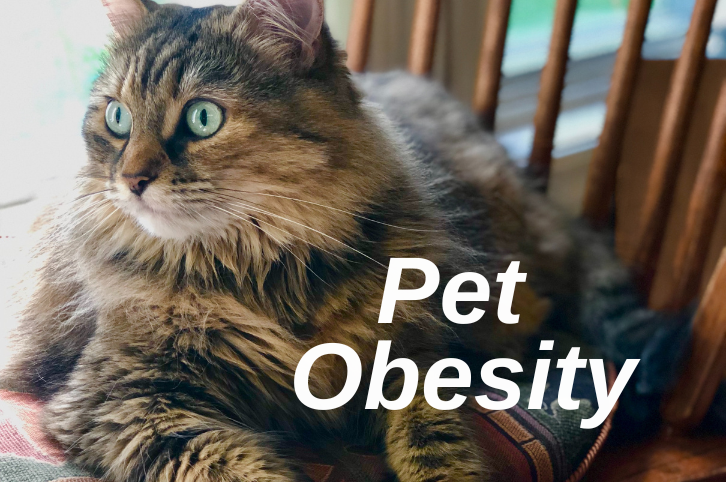For A Long, Long Time
We love our pets. We all want them to be around as long as possible. To ensure that, we love them, walk them, play with them, and relish their quirks and antics. It’s easy to give into their longing looks or hopeful stares when we’re eating something, and, of course, they’re always up for a treat or ten. Although it’s okay to indulge their soulful, longing looks on occasion, helping your pet maintain a healthy weight plays a significant role in keeping them around and healthy for a long, long time.
Health Risks of Obesity in Pets
Clearly, we’re entirely different species, but obesity in pets predisposes them to many of the same risks as obesity in their owners. Overweight and obese pets are at higher risk of developing the following illnesses than their ideal-weight counterparts:
- Arthritis
- Joint injuries
- Back problems
- High blood pressure
- Kidney disease
- Diabetes
- Respiratory complications
- Some kinds of cancer
- Complications with anesthesia
Managing your pet’s weight can not only impact their life expectancy but also their quality of life.
How To Determine Your Pet’s Ideal Weight
The Association for Pet Obesity Prevention has developed a tool called the Body Condition Score or BCS to help you and your veterinarian determine whether your pet is obese. The scale for both cats and dogs ranges in score from one to nine. One represents being 20% (or more) underweight while a score of nine indicates that a pet is obese.
For both cats and dogs, a BCS of five indicates an ideal weight. At a score of five, your pet will have:
- A visible waist
- An abdominal area that has a visible, slight slope up
- No bulges in the abdominal area
- Ribs, spine, and hip bones that are either visible or easily felt (depending on the thickness of your pet’s coat)
- Some fat around the ribs, spine, and hips but they can be easily felt
If you’re concerned about your pet’s weight and its impact on their mobility or health, it’s a good time to make an appointment with their vet.
How To Help Your Pet Lose Weight
None of us want to hear the words “lose weight”, but we all know when they’re necessary for us. We also likely know about portion control and calorie counting for people. Unsurprisingly, the same is true for your pet. Calorie counting for your furry best friend is slightly more complicated than calorie counting for yourself, though, because the kind of food (and treats) you feed your pet determines how much they should eat daily. Your vet will be able to determine your pet’s nutritional needs and, based on the food they eat, calculate the amount they should eat each day.
Of course, exercise will help, too. A half-hour of fairly vigorous exercise will benefit your dog while your cat will benefit from five minutes of intense play three times a day.
Magnolia Springs Veterinary Clinic
October 11, 2023, is World Pet Obesity Awareness Day. Magnolia Springs Veterinary Clinic in Mount Pleasant, WI can help you manage your pet’s weight that day or any other. We can be reached by phone at (262) 770-3106 to support your pet’s health and find their ideal weight.

